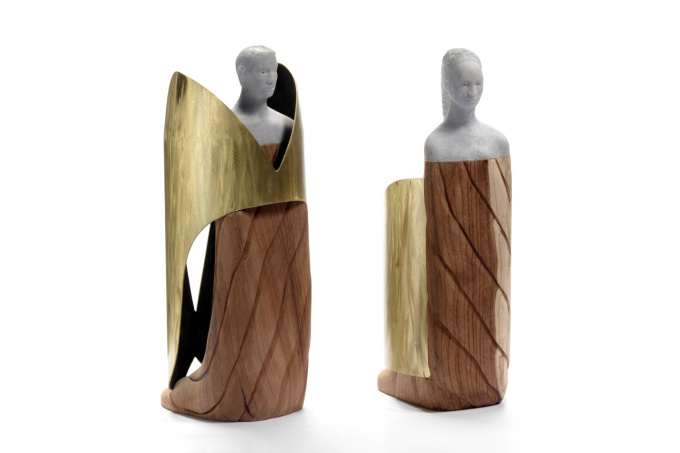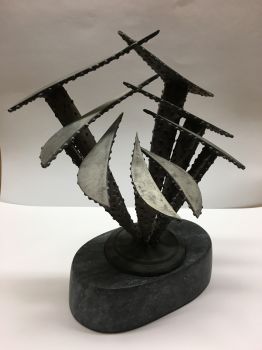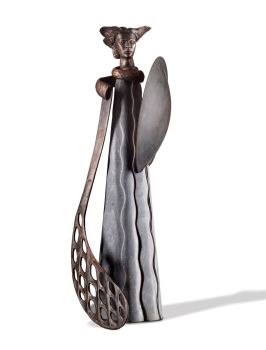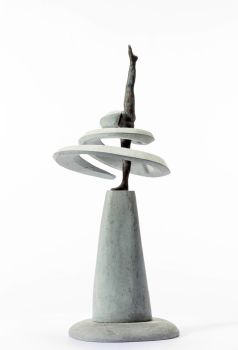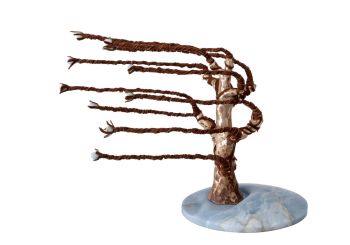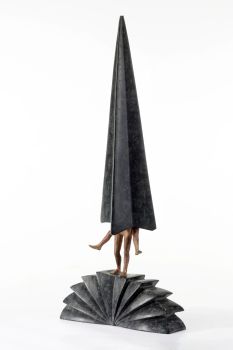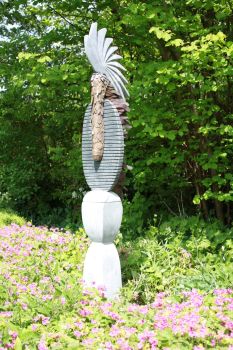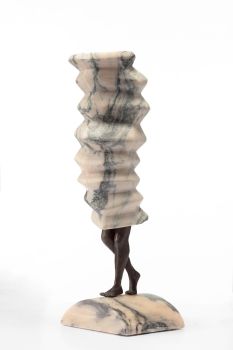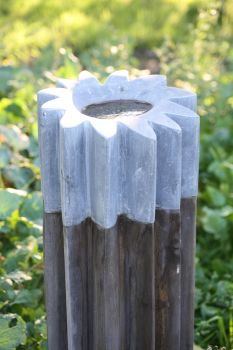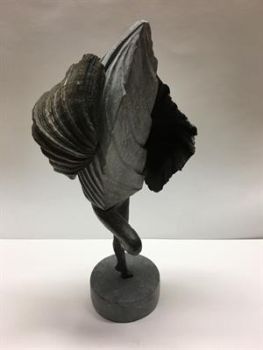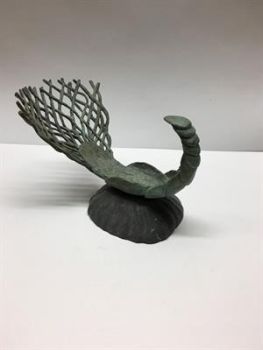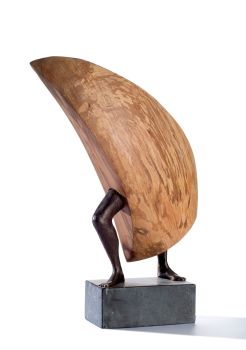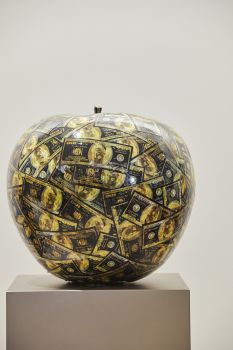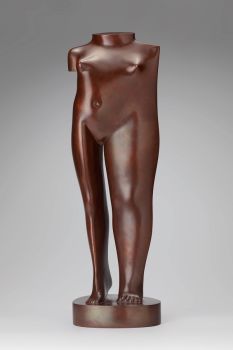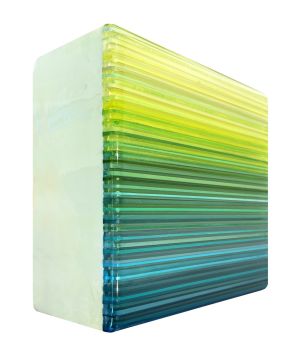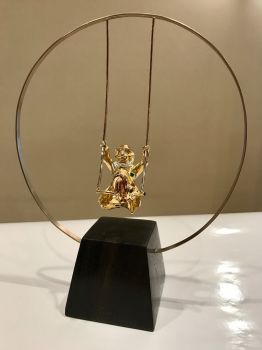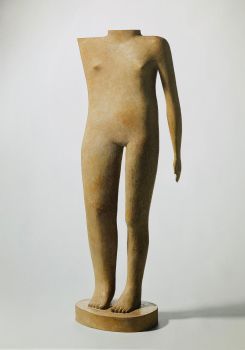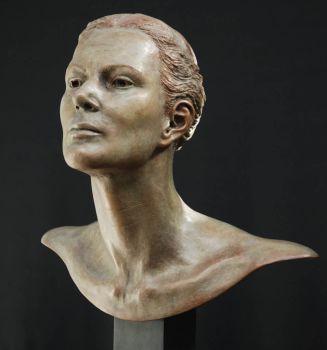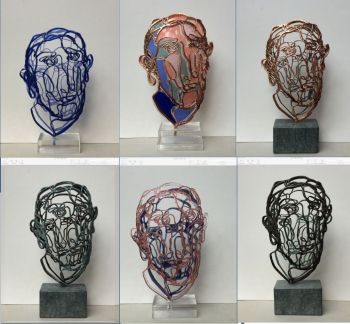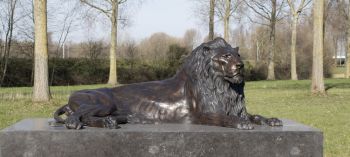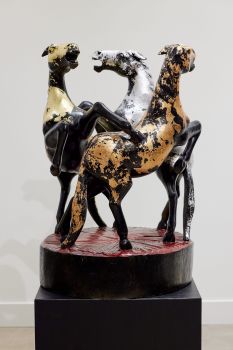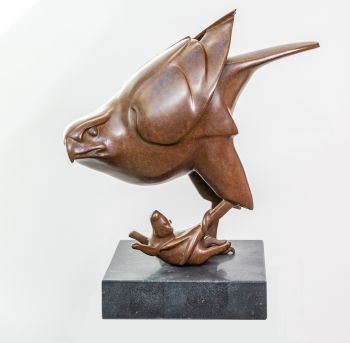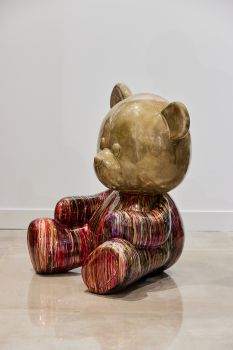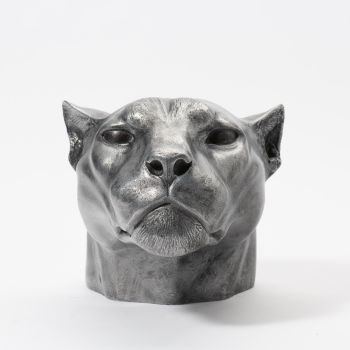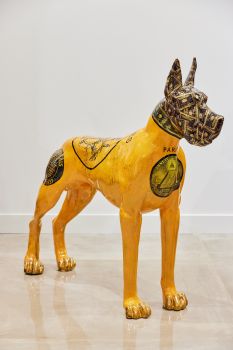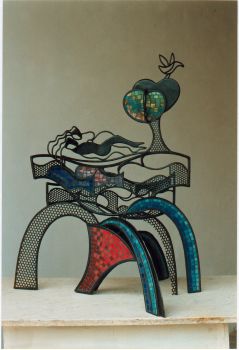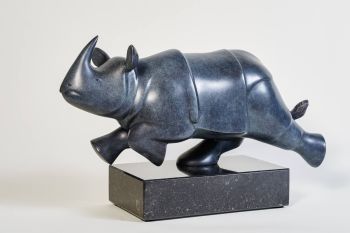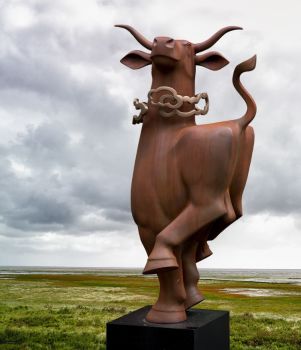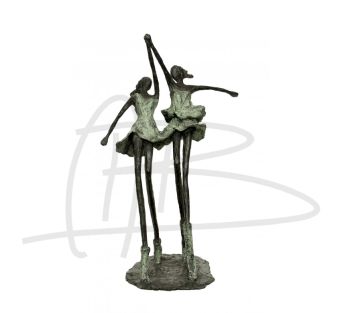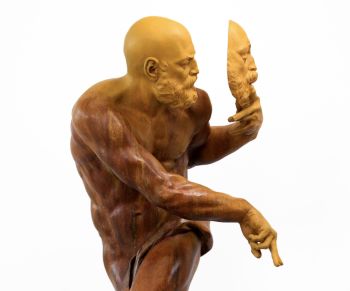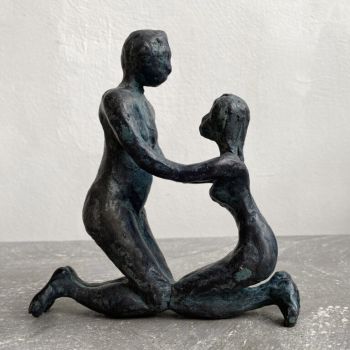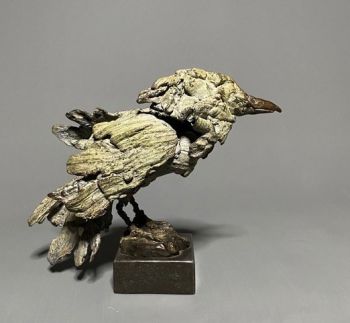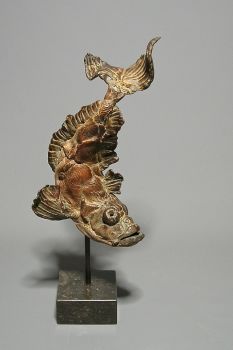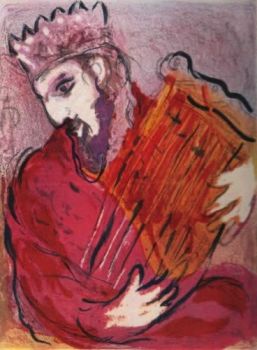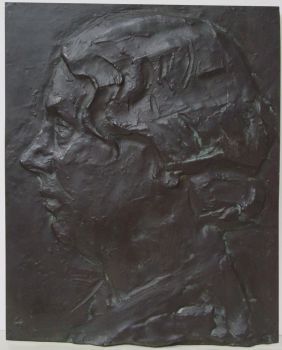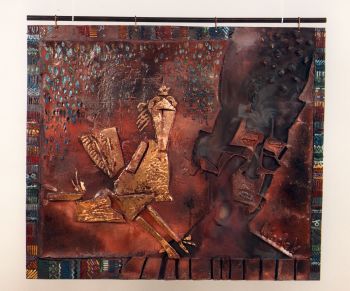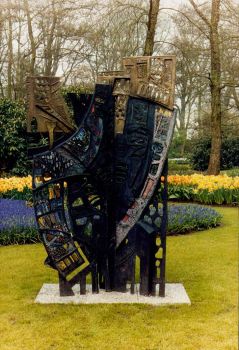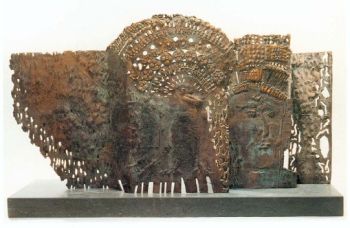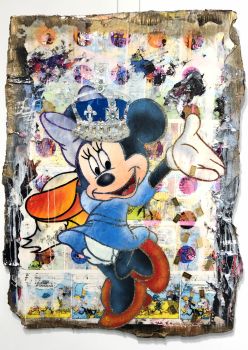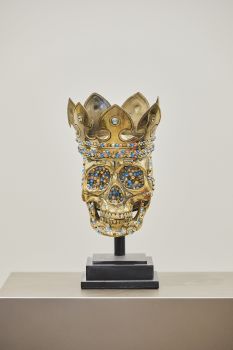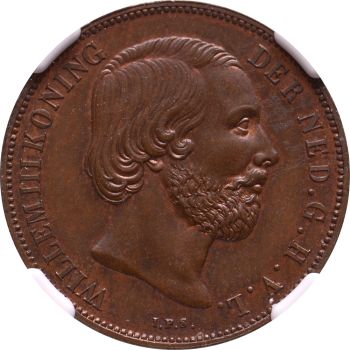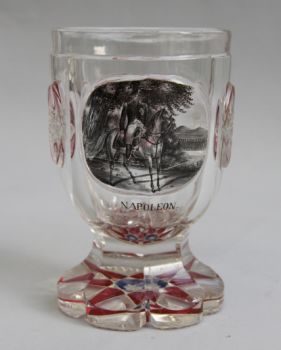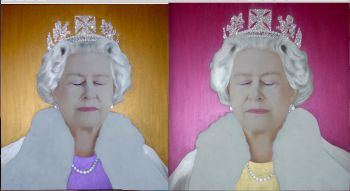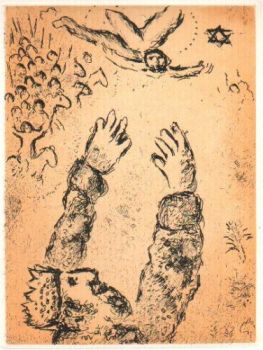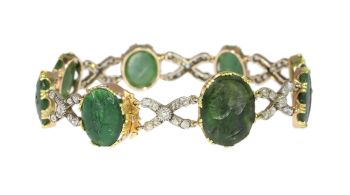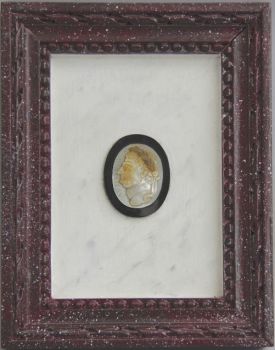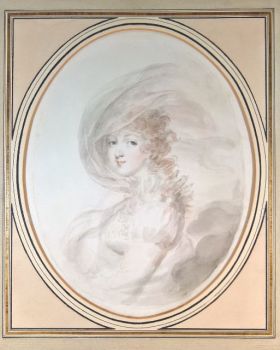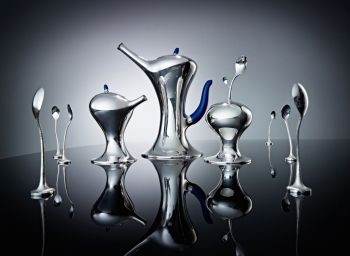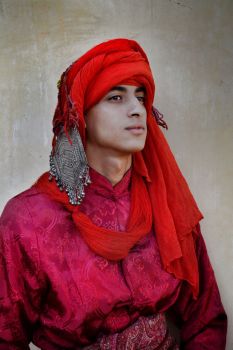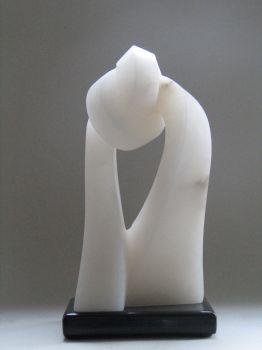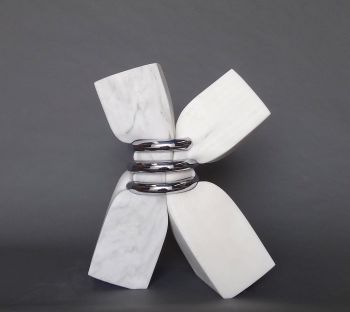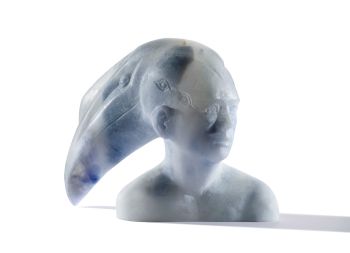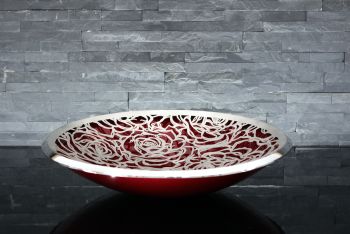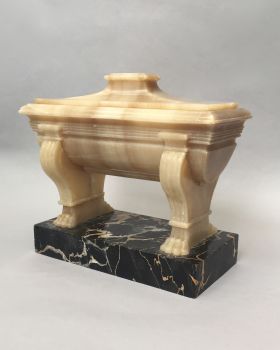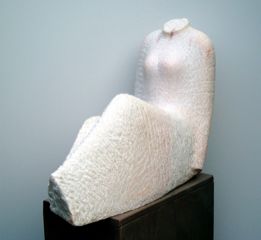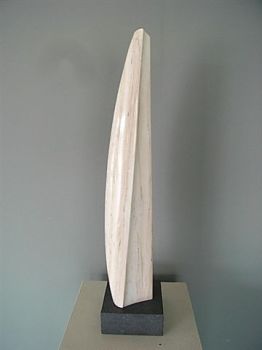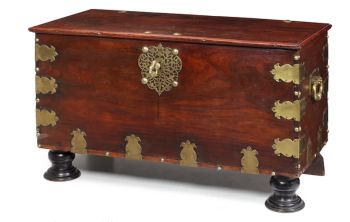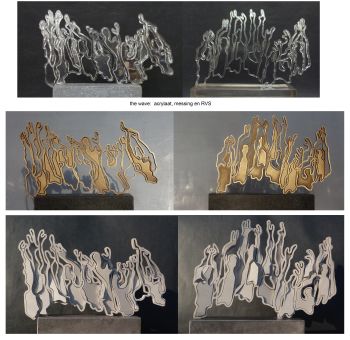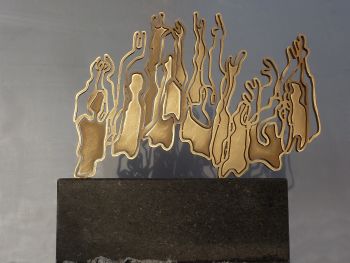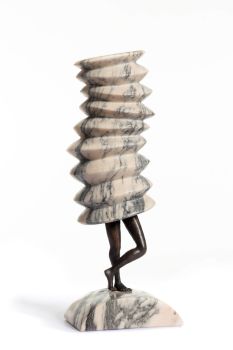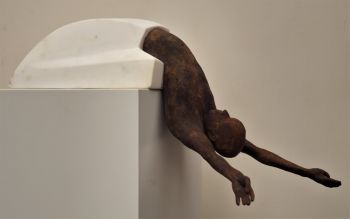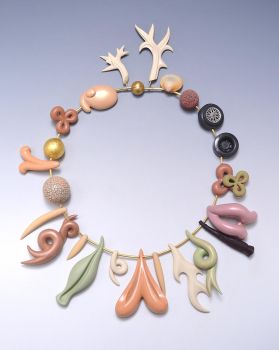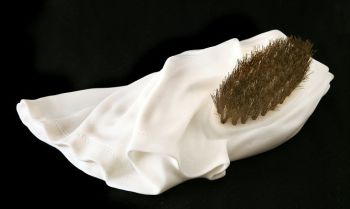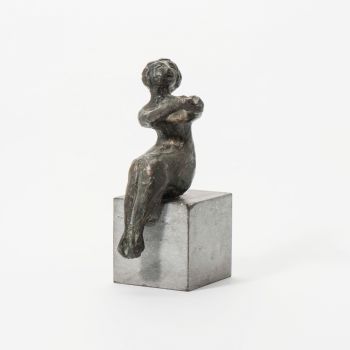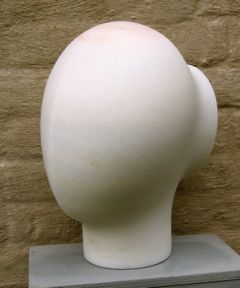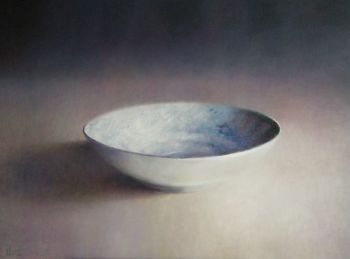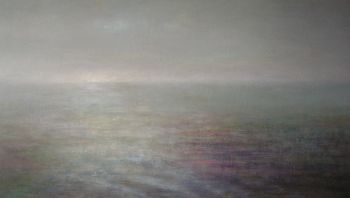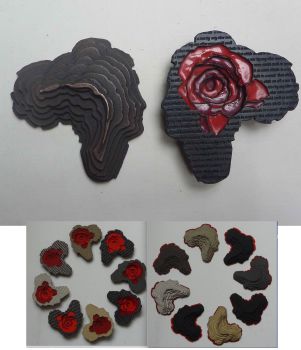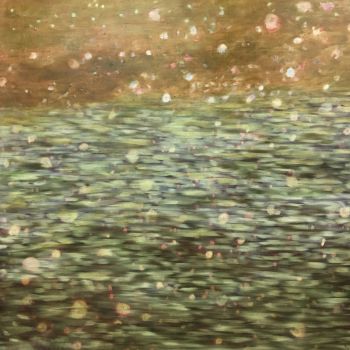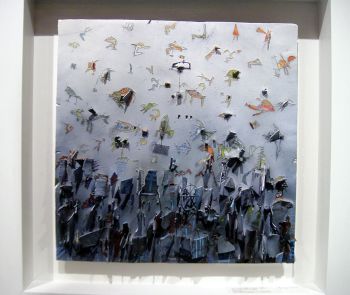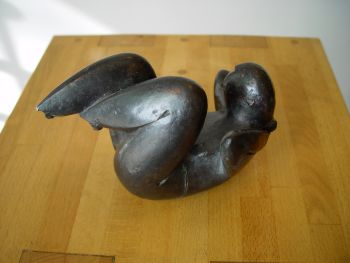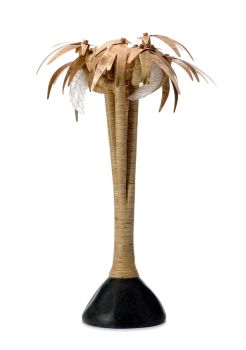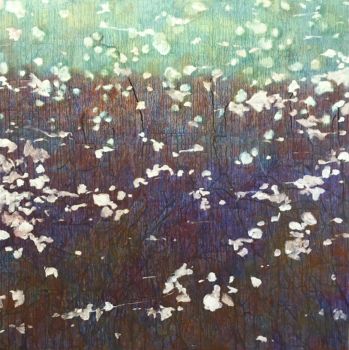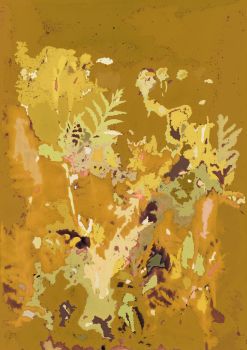King and Queen 2014
Hans Rikken
MarbleStoneAlabasterWoodMetalBrassGemstone
25 ⨯ 15 ⨯ 10 cm
ConditionExcellent
€ 3.000
Galerie Bianca Landgraaf
- About the artist
Rikken studied at the Academy of Art and Industry in Enschede, where he had lessons from Jan van Eyl and Pearl Perlmuter, among others. He graduated with water plastics in 1980. The artist now lives and works in Groningen.

In the Werkman Year (1995) Rikken made a steel bridge for the Gallery Art Show. The Werkman bridge was placed in the Soendavijver in the city of Groningen in 1998.
Hans Rikken (1956) has had many commissions. There are about 35 of his sculptures scattered throughout the country. Apart from the fact that he always finds it a challenge to complete a commission in a good and original way, over the years he has gained enormous experience with materials and with the way materials can be combined. This broad experience clearly serves him well in his free work.
At the beginning of his career, Rikken worked mainly with existing objects, objects he found in his immediate surroundings or on his walks. This working method has not changed completely, only that he now increasingly creates the parts of a work that he feels are missing. For this, he only has to reach around him, because there is enough 'stock'.
A glance in the studio also immediately reveals another characteristic of his work: one image usually forms the basis for the next. They inspire each other, they lead to and from each other, they call each other into being.
Hans Rikken does not have a fixed theme in his work. He himself says that dreams play an important role in the creation of his work. He sometimes literally dreams up works. The "curiosity part" of his dreams turns out to be particularly inspiring. As he tells it, it is not strange to conclude that for him a dream functions as a sketch for another artist. Furthermore, a text or a particularly formulated sentence from a song or a poem can be the inspiration for a sculpture. The many walks in nature and what he sees or what forces itself on him can also be the inspiration for a new work. A striking image from a documentary on 'National Geographic' can also be the trigger.Sometimes the sculptures are figurative - for example, a cup that he made on the occasion of his father's death - but usually abstraction and figuration run into each other or merge into one another. A sculpture always consists of different parts. These image elements are combined with each other, like a collage or an assemblage. It is striking that most of them have a vertical orientation. There is no deep thought behind this; it seems to happen automatically during the creative process. The exciting thing about this working method is that it is not only the combination of different forms that produces surprises, but also the combination of completely different materials that produces unpredictable results.
In fact, you could say that he tells a story with every sculpture, preferably an absurd story, a story with Kafkaesque features. That story is never completely finished; it always offers the viewer the possibility of creating his own version. This is because, as he himself says, Rikken creates "air around his images", comparable to the pieces of white in poetry. He literally and figuratively creates space. His sculptures suggest rather than tell a story with a beginning and an end.
He has a simple and logical explanation for the developments in his work. He "marks his life" with his sculptures. The events and changes in his life - getting older, gaining more experience, having an open eye for the changing technical possibilities etc. - are reflected in his work. - are reflected in his work.
What also struck me when I visited his studio is that Hans Rikken is not a tormented artist. He has an optimistic outlook on life and therefore takes visible pleasure in creating. It still gives him satisfaction to surprise himself with yet another sculpture, of yet another composition, with yet another narrative effect on the viewer.
Are you interested in buying this artwork?
Related artworks
- 1 - 4 / 12
- 1 - 4 / 24
Lambertus Zijl
Portrait of Juliana, queen of the Netherlands (1948-1990)1900 - 1950
Price on requestKunsthandel Pygmalion
Unknown artist
18th Century Diamond Bracelet with 2000-year-old Intaglios1790
€ 23.000Adin Fine Antique Jewellery
 Curated by
Curated byDanny Bree
1 - 4 / 24- 1 - 4 / 24
- 1 - 4 / 12

